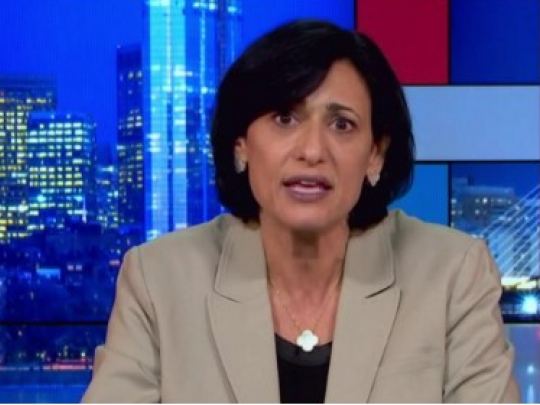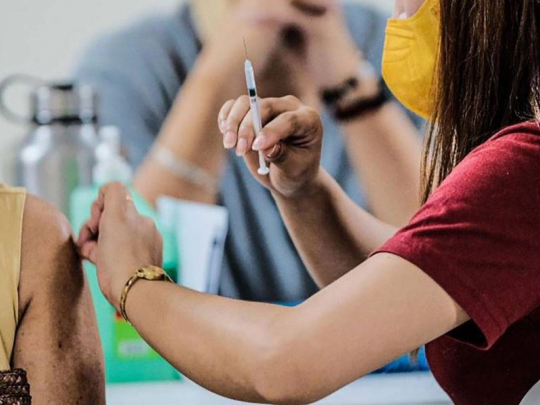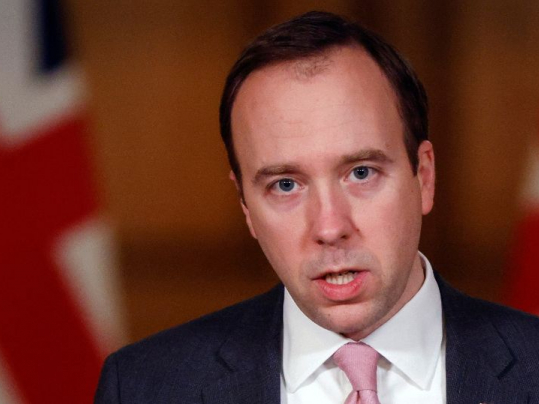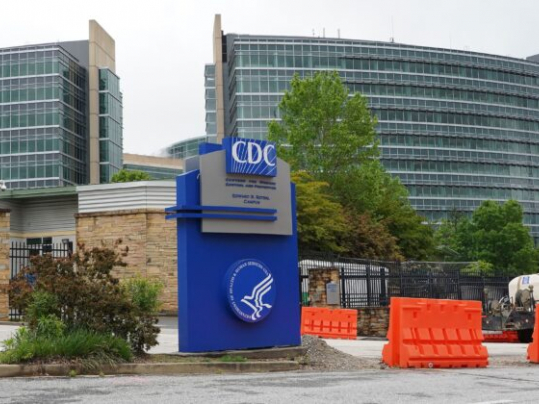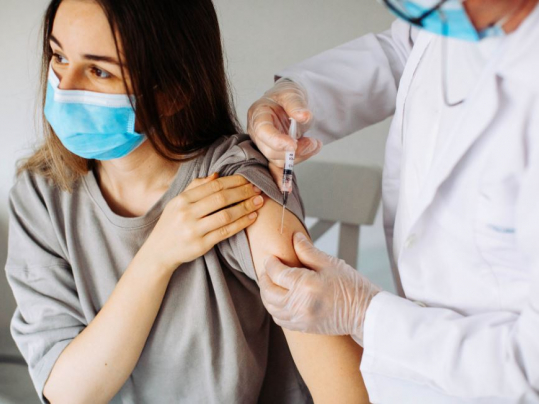Why Omicron COVID Variant Is Being Treated Like Ebola Which Kills Up To 90% Of Those It Infects

As I listened to ministers react nervously in recent days to the new Omicron Covid variant, I began to experience an all-too-familiar sinking feeling.
Shall I put it into words? Here we go again, I thought.
Mask mandates have been reimposed in shops, schools and hairdressers, and new swingeing £200 fines will be levied on those who dare to break the rules.
Meanwhile, the inevitable chorus of gloomy voices has begun to sing again: that unholy alliance of scientific ‘experts’ who have been given blanket coverage by the BBC and Left-wing media so often during this pandemic.
The Government has used these voices as justification to impose fresh restrictions on our lives — as well as to threaten more in future.
Panicking
Right now, the key question is: are any of the new measures actually necessary?
Yes, there remains much we don’t know about Omicron, but the early signs are distinctly encouraging. Many patients have reportedly recovered quickly from what have been very mild symptoms.
Southern Africa, where the variant emerged, has largely avoided panicking. One German epidemiologist, Professor Karl Lauterbach, who is running to be Germany’s next health minister, has even said that a mild strain would be an ‘early Christmas gift’.
Given all that, how much can the Government’s hawkish approach truly be justified?
Very little, I would submit.
The real danger for most of us now comes not from Omicron or any other coronavirus variant. Instead, it comes from ministers and officials apparently flirting with taking us into yet another era of ruinous restrictions, cancelling Christmas or other cherished holidays, dashing all hope of foreign travel, wrecking the economy and otherwise immiserating our lives at the whim of the state.
Yes, a new, heavily mutated coronavirus variant has been identified. But Professor Lauterbach, a highly respected clinical epidemiologist, suggested yesterday that the variant might even be good news. Why? Because its numerous mutations — twice as many as the Delta variant that swept the world this year — mean that though it may well be more infectious, it could also be less deadly.
In layman’s terms, this means that more people might catch it, but not suffer serious illness. And that is a good thing — certainly compared to a very infectious, very virulent virus with the capacity to sicken or kill large numbers of people.
Anyone infected with a ‘mild’ Covid virus — one unlikely to cause serious disease — will still develop antibodies to guard against future infection. And the more people with such antibodies, the closer we are to the fabled ‘herd immunity’.
This, coupled with the help of our highly successful vaccination programme, could even spell the eventual end of the pandemic — though not, it must be said, the end of Covid.
This is the sort of grown-up discussion ministers should be having with us. Instead, by announcing new restrictions over the weekend, flanked by his two familiar harbingers of doom, Professor Chris Whitty and Sir Patrick Vallance, the Prime Minister risked terrifying large swathes of the nation all over again — just as they were beginning to catch their breath as the worst of the pandemic was lifting.
Coronavirus restrictions, it should not need pointing out, do not work in isolation.
A year ago, I wrote in the Mail how I believed that lockdown was a killer in the making far worse than Covid-19. Today, I stand by that view.
From spiralling hospital waiting lists and delayed cancer treatment to the horrendous impact on the mental health of the nation, I think we are seeing the tip of an iceberg of premature deaths from causes other than Covid — and that, in time, history will reveal the second and third lockdowns, at least, for the folly I believe them to be. That is before you contemplate the ramifications of our sabotaged economy: livelihoods destroyed by the enforced shutdown of businesses and High Street firms shuttered thanks to working-from-home mandates.
It is imperative that ministers do not go down that dangerous road again — unless some terrible new variant or new virus with a vastly higher death rate does emerge.
Even the most fervent lover of lockdown would be hard-pressed to describe today’s scenario as an Armageddon-in-the-making, especially as the virus is behaving exactly as scientists always suspected that it would.
Just as with flu, it is likely that in years to come the world will experience new waves of this coronavirus. Crucially, there is no evidence that these waves will somehow be ever-more lethal. Instead, it is likelier that this virus, like most pathogens, will become less deadly over time.
Cautious
This flies in the face of those who favour the ‘just-in-case’ argument: that we must be extra cautious and ready to lock down early again, lest the new variant prove more dangerous than anticipated.
That argument was valid at the start of the pandemic, when we lacked treatments and vaccinations. But it does not hold any longer.
Today, we are well-versed in the ways of our foe. With a few exceptions (usually the unvaccinated), most people are dying with Covid, not necessarily because of it, while others have had an imminent death merely hastened.
Even the most compassionate individual must realise that public policy cannot be founded on trying to mitigate against a death that, however sad, was due sooner rather than later.
A long time ago, when I was a junior doctor working in A&E, I was initially amazed by the fact that among those admitted to hospital with flu and pneumonia symptoms were the young and fit. That is often the nature with the flu virus.
A percentage of them would end up in intensive care, and a proportion would die — just as they do today.
Each individual death was terribly sad, of course, but no one would argue they meant that we should change our health policy.
What a contrast with today, when we live in a country increasingly bedevilled by what the former Supreme Court judge Jonathan Sumption has rightly labelled ‘Covid authoritarianism’.
Paralysis
Flailing Labour politicians, desperate for any stick with which to beat the Government, demand ever-tougher measures: work-from-home advice and yet more masks, with new lockdowns and furlough schemes waiting in the politicians’ arsenal.
In Scotland, First Minister Nicola Sturgeon exhorts her citizens to work from home while demanding tougher restrictions down south.
Many of us are only too happy to let such Cassandra-like prophecies drift over our heads, but there are many others who have been frightened into what feels like near-permanent paralysis in the face of the news headlines and political shroud-waving.
I see this phenomenon among my own friends. There is a clear divide between those who, like me, think we need to get on with our lives, and others who still appear obsessed with Covid, long after the worst of the virus appears to have retreated.
Yet get on we must. We are not dealing with Ebola, which kills up to 90 per cent of those it infects, but a virus which was found in one Cambridge University study last summer — thanks to vaccinations and better treatments — to have an infection fatality rate of just 0.085 per cent.
By all means let us watch this virus closely. But let us also retain the clear perspective and the common sense that should hold in a free society.
Angus Dalgleish is an oncologist at a London teaching hospital. This opinion piece was originally published on Dailymail.
- Source : GreatGameIndia




